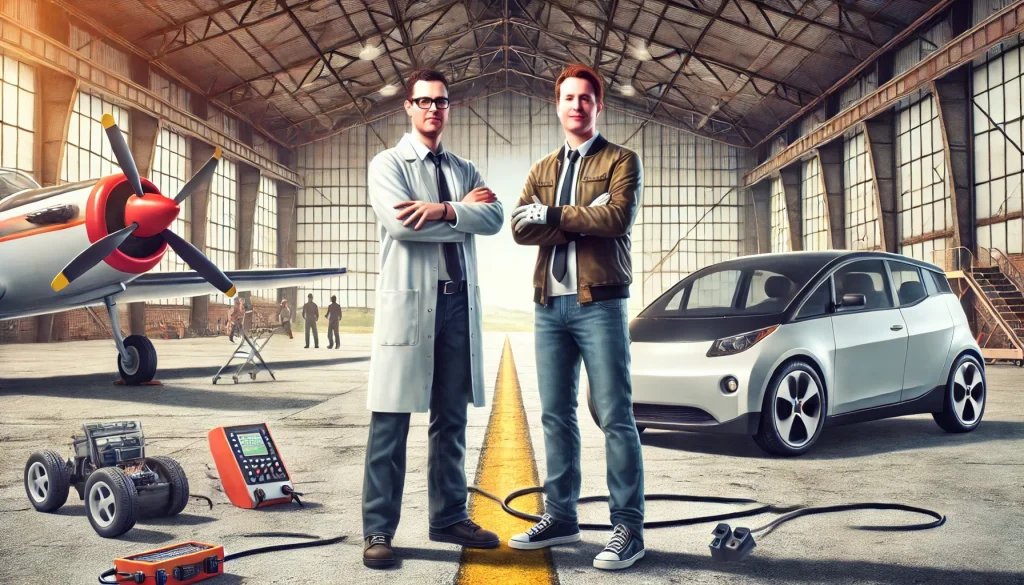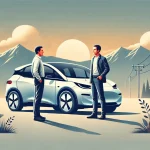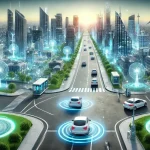As electric vehicles (EVs) gain popularity, so too have the myths and misconceptions surrounding them. While many people are excited about the future of clean, sustainable transportation, others remain skeptical due to misunderstandings about the technology. In this article, we’ll debunk some of the most common myths about electric vehicles and provide real information about what these cars are truly capable of.
Myth 1: Electric Vehicles Don’t Have Enough Range for Daily Use
One of the most persistent myths about electric vehicles is that they don’t have enough range to cover daily driving needs. While this may have been true for early EV models, it’s no longer the case with modern electric vehicles. Today’s EVs, such as the Tesla Model 3, Ford Mustang Mach-E, and Nissan Leaf, offer ranges between 200 and 400 miles on a single charge, which is more than enough for most commutes and errands.
According to studies, the average driver travels about 30 to 40 miles per day, well within the range of even entry-level electric cars. For those concerned about longer trips, there is a growing network of fast-charging stations, making it easier than ever to drive an electric vehicle for extended journeys.
Myth 2: Electric Vehicles Are More Expensive Than Gasoline Cars
While it’s true that the upfront cost of many electric vehicles is higher than their gasoline-powered counterparts, this myth fails to account for the total cost of ownership. EVs typically have lower operating costs, thanks to cheaper “fuel” (electricity), fewer maintenance requirements, and government incentives in many regions that reduce the purchase price.
Electric vehicles don’t require oil changes, have fewer moving parts, and experience less wear and tear on components like brakes due to regenerative braking. Over time, these savings can make owning an electric vehicle more affordable than a traditional internal combustion engine (ICE) car. Additionally, as battery technology improves and production scales up, the prices of electric vehicles are expected to continue dropping.
Myth 3: Electric Vehicles Are Slow and Have Poor Performance
This myth likely stems from outdated perceptions of early electric vehicles, which were sometimes underpowered. Modern electric vehicles, however, are known for their impressive acceleration and performance. Tesla’s Model S Plaid, for example, can go from 0 to 60 mph in under two seconds, making it one of the fastest production cars in the world.
Electric motors deliver instant torque, meaning EVs can accelerate rapidly and smoothly. Additionally, EVs often have a lower center of gravity due to their battery placement, which enhances handling and stability. Whether it’s for city driving or high-performance sports driving, modern EVs offer plenty of power and agility.
Myth 4: There Aren’t Enough Charging Stations
Another common concern is the availability of charging stations, especially for those who live in areas without widespread infrastructure. While it’s true that charging infrastructure is still developing in some regions, the situation has improved significantly in recent years. Countries around the world are investing heavily in expanding public charging networks, with charging stations now widely available in many urban areas, shopping centers, and along highways.
In addition to public chargers, most EV owners charge their vehicles at home overnight using Level 2 chargers. With the convenience of home charging, many drivers rarely need to use public charging stations for day-to-day driving. Fast-charging networks like Tesla’s Supercharger stations and others continue to expand, further reducing range anxiety for long trips.
Myth 5: EV Batteries Don’t Last Long and Are Expensive to Replace
Battery longevity is a concern for some prospective EV buyers, but this fear is largely based on outdated information. Modern electric vehicle batteries are designed to last a long time, with many manufacturers offering warranties of 8 years or 100,000 miles or more. Studies have shown that EV batteries typically retain a large portion of their capacity even after 100,000 miles of driving.
While battery replacement costs can be high, the need for such replacements is rare. Improvements in battery technology, along with innovations like battery recycling, are making battery replacement less of a concern. Additionally, the long-term cost savings from reduced maintenance and fuel expenses can help offset any potential battery replacement costs.
Myth 6: EVs Are Not Truly “Green” Due to Battery Production
It’s true that producing EV batteries has an environmental impact, particularly in terms of the energy and raw materials required for manufacturing. However, when considering the entire lifecycle of a vehicle, electric cars are far more environmentally friendly than gasoline-powered cars. EVs produce zero emissions while driving, helping to reduce air pollution and greenhouse gases.
As renewable energy sources such as solar and wind power become more common, the environmental footprint of EV charging is also shrinking. Furthermore, battery recycling programs are being developed to reduce the environmental impact of battery disposal, making EVs an even more sustainable option.
Conclusion
While there are still misconceptions about electric vehicles, the reality is that modern EVs offer a reliable, cost-effective, and environmentally friendly alternative to traditional gasoline cars. With advancements in range, performance, and charging infrastructure, electric vehicles are becoming an increasingly viable option for drivers around the world. By understanding the facts and debunking these common myths, consumers can make informed decisions about whether an electric vehicle is right for them.



Oh, I didn’t know there were so many myths about electric cars.
The biggest myth about Tesla is that it’s just a gadget, not a real car. I totally disagree with that.
If you ain’t tryna go far, then yeah, it’s actually pretty chill 😎
EV myths busted! 💥🚗 Range anxiety? Performance issues? No way! EVs are great now! 👍
Hah, your open my eyes evs – future! 👍👍
lol EV myths r bogus 👎👎 im already knew ab everything
range anxiety still sucks tho 👎